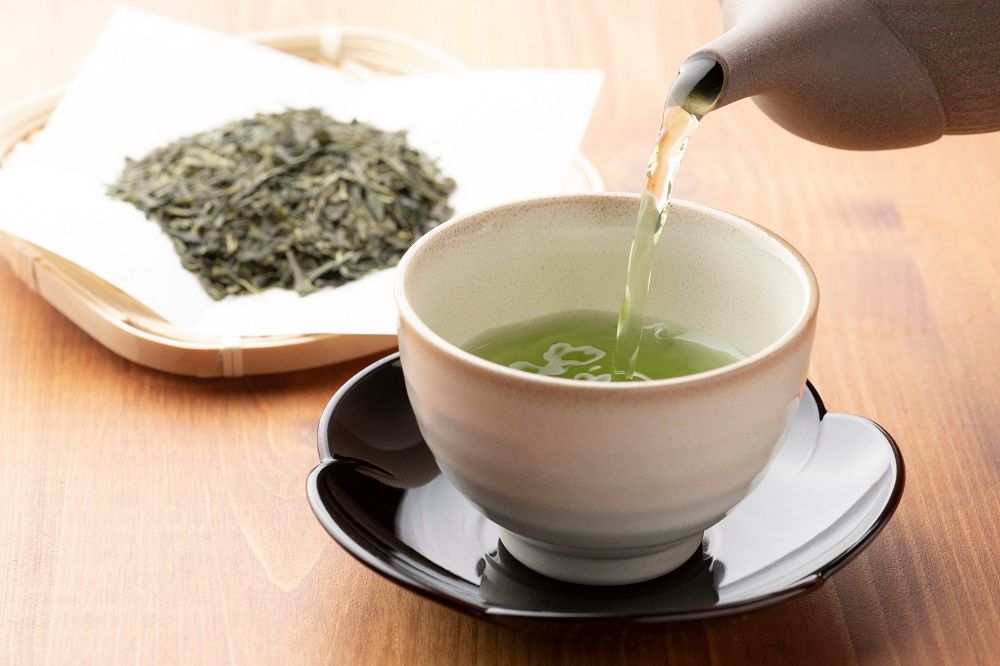Green tea is a popular and trendy beverage that differs from the more well-known black tea in that it is made from leaves that have not been oxidized. The result is a lighter-tasting and appearing drink that comes with wellness benefits for the consumer. Studies suggest that green tea will improve blood pressure, digestion, and mental alertness.
Green tea can also provide advantages for your oral health thanks to its antioxidants. But it might also pose a threat to your dental structure if you are not careful. Read on to discover how green tea can impact the look and feel of your gums and teeth.

Improve Gum Health and More with Antioxidants
Green tea is known for the antioxidants it contains. Antioxidants are compounds that fight off toxins that could damage healthy cells in your body. Consuming products that feature antioxidants can lower your risk of developing certain health issues.
More specifically, antioxidants can reduce the more harmful effects of your body’s inflammatory response. It can cut down on swelling and irritation that stems from inflammation from chronic concerns like heart disease or diabetes. This proves true for oral infections like gum disease too.
Gum disease refers to an infection of the gum tissue that commonly presents with inflamed gums in its early phases. As the infection spreads, bacteria will damage the jawbone and tooth root as well, leaving you with lasting dental issues and even tooth loss.
Gum disease will need intervention from a dentist to eradicate. They will employ thorough cleaning techniques through periodontal therapy to get rid of the infection. But to avoid spending more time in the dentist’s chair, you should focus on preventative care when it comes to gum health.
Antioxidants in green tea could help keep gum disease at bay and relieve uncomfortable symptoms of gum disease. Make sure you talk to your dentist about any issues you notice in your gums.
Beware of Dental Damage from Excess Consumption
Though green tea can have clear oral health benefits, it may also damage your teeth if you do not pay attention to your smile. Green tea has a lighter color than black tea, but it still contains tannins which may transfer to teeth and stain your smile.
Your dentist can treat dental discoloration with whitening solutions, but you should protect the appearance of your smile when you can. Look for early signs of yellowing or staining and avoid overconsuming green tea to preserve your tooth color.
Antioxidants in green tea can reduce the risk of tooth decay as well as infections. But extra ingredients like added sugar could actually heighten your chances of forming decay.
Sugar will eat away at your dental structure, putting you in danger of cavities, despite other oral health benefits in green tea. Check the contents of your beverage before you consume it. Ask your dentist for more preventative care tips in relation to green tea at your next appointment.
